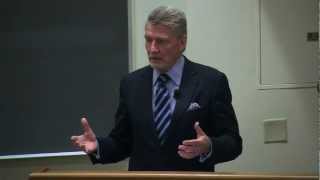The Long Campaign: What Have We Learned about War and Ourselves since 9/11
While considerable progress has been made in degrading al Qaeda’s operational capabilities, the terrorist threat inspired by its ideology could persist for decades. The terrorist group’s efforts to inspire homegrown terrorists continue, but so far, have produced meager results. America’s Muslims have rejected al Qaeda’s exhortations while effective domestic intelligence efforts have prevented almost all domestic terrorist attacks. Both are now being challenged from opposite ends of the political spectrum. America’s counterterrorist campaign has not savaged civil liberties, but our democracy in dancing on the edge of tyranny as America has laid the legislative foundation for a more repressive state. We now depend too much on the wisdom of our officials to show self-constraint, which the current political environment hardly permits. Meanwhile, a decade of unprecedented tranquility at home has only encouraged an unrealistic public expectation of zero risk. Americans have demonstrated that a tragic terrorist attack cannot bring down this republic. Only its frightened and divided citizens can.
Biography: Brian Michael Jenkins, senior adviser to the president at the RAND Corporation, is the author of Will Terrorists Go Nuclear (2008, Prometheus Books) and of several RAND monographs on terrorism-related topics. He formerly served as chair of the Political Science Department at RAND. In anticipation of the 10-year anniversary of 9/11, Jenkins spearheaded the RAND effort to take stock of America’s policy reactions and give thoughtful consideration to the future strategy. That effort is presented in The Long Shadow of 9/11: America’s Response to Terrorism (Brian Michael Jenkins and John Paul Godges, eds., 2011).
Commissioned in the infantry, Jenkins became a paratrooper and a captain in the Green Berets. He is a decorated combat veteran, having served in the Seventh Special Forces Group in the Dominican Republic and with the Fifth Special Forces Group in Vietnam. He returned to Vietnam as a member of the Long Range Planning Task Group and received the Department of the Army’s highest award for his service.
In 1996, President Clinton appointed Jenkins to the White House Commission on Aviation Safety and Security. From 1999 to 2000, he served as adviser to the National Commission on Terrorism and in 2000 was appointed to the U.S. Comptroller General’s Advisory Board. He is a research associate at the Mineta Transportation Institute, where he directs the continuing research on protecting surface transportation against terrorist attacks.
